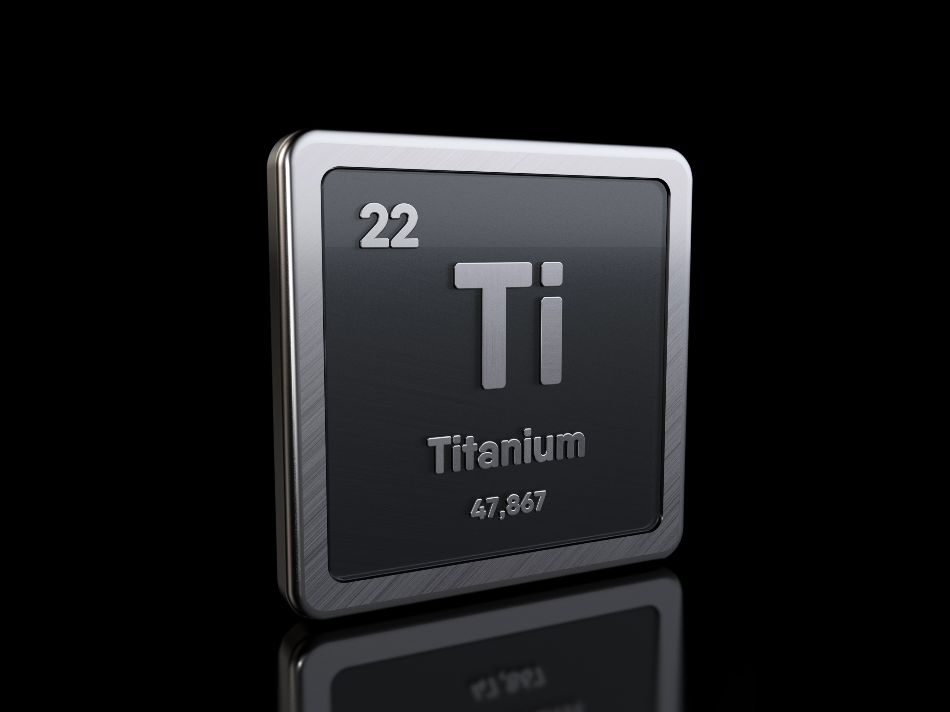Feb 5 2002

7enotov / Shutterstock
Chlorine and its compounds have strong oxidizing properties. Therefore, in an aqueous solution, they are not corrosive toward titanium. Titanium is a highly unique metal that can withstand these conditions.
Applications
Titanium is used in a large number of applications because it has excellent corrosion resistance against moist chlorine gas as well as chloride-containing solutions. Titanium is extensively used in bleaching equipment for pulp and paper; dimensionally stable anodes; chlor-alkali cells; heat exchangers, pumps, vessels, and piping utilized in the production of organic intermediates; pollution control devices; and also in the production of human body prosthetic devices.
The user or equipment manufacturer dealing with the issue of chlorine or chloride corrosion will find titanium’s resistance over an extensive range of concentrations and temperatures very useful.
Chlorine Gas Corrosion
Titanium is extensively used to control moist chlorine gas and has gained a reputation for excellent performance in this service. Also, the strongly oxidizing nature of moist chlorine passivates titanium, leading to low corrosion rates in moist chlorine. Dry chlorine can quickly attack titanium and may even lead to ignition if the moisture content is very low.
However, at room temperature, 1% of water is normally enough for passivation or re-passivation following mechanical damage to titanium in chlorine gas under static conditions. Factors like gas flow, gas pressure, temperature, and mechanical damage to the oxide film on the titanium govern the real amount of moisture needed.
Around 1.5% moisture is probably needed for passivation at 390 °F (199 °C). Therefore, while using titanium in chlorine gas, care should be taken where moisture content is low.
Chlorine Chemicals Corrosion
Titanium is completely resistant to solutions of chlorine dioxide, chlorates, chlorites, perchlorates, and hypochlorites. Titanium equipment has been used to deal with these chemicals in the pulp and paper sector for a number of years, with no sign of corrosion.
Nowadays, titanium is used in almost all equipment that handles chlorine chemicals or wet chlorine in a modern bleach plant, like washers, piping, and chlorine dioxide mixers. These applications are expected to increasingly use titanium in the future in wastewater recovery equipment and ClO2 generators.
Chloride Corrosion
Titanium has exceptional corrosion resistance to neutral chloride solutions even at comparatively high temperatures. The metal usually has very low corrosion rates in chloride surroundings. Crevice corrosion appears to be the restrictive factor for the application of titanium and its alloys in aqueous chloride environments.
Crevice Corrosion
In the presence of crevices, unalloyed titanium can occasionally corrode under conditions that are not predicted by standard corrosion rates. Research has revealed that temperature and pH are significant variables with respect to crevice corrosion in brines. At 200 °F (93 °C) and above, corrosion in sharp crevices in near-neutral brine can occur with unalloyed titanium.
Reducing the pH of the brine reduces the temperature at which crevice corrosion could occur, whereas increasing the pH lowers the susceptibility of crevice corrosion. However, crevice corrosion on titanium may not occur below 158 °F (70 °C). The existence of high concentrations of cations other than sodium, like Mg2+ or Ca2+, can also modify this relationship and cause localized corrosion at lower temperatures.
Bromine and Iodine Corrosion
The resistance of titanium to iodine and bromine is analogous to its resistance to chlorine. Titanium is attacked by dry gas but is passivated by the presence of moisture. It has been reported that titanium is resistant to bromine water.
Fluorine Corrosion
It is not recommended to use titanium along with fluorine gas because the potential formation of hydrofluoric acid even in small quantities can result in very high corrosion rates. In the same way, the existence of free fluorides in acid aqueous environments may lead to the formation of hydrofluoric acid and, as a result, quickly attack titanium. By contrast, fluorides are fully complex or chemically bound by metal lions, or highly stable fluorine-containing compounds (for example, fluorocarbons) are usually non-corrosive to titanium.